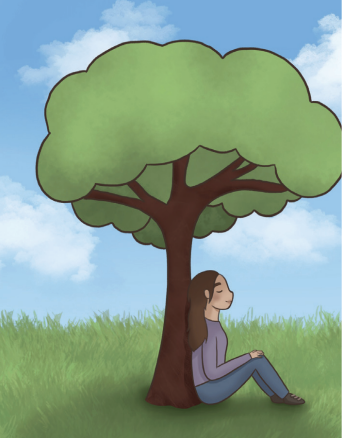The UltraViolet staff and I, as the Public Editor, have made the decision to adjust our policy on quote checks starting with this issue.
Previously, the UltraViolet staff sent faculty and staff members an email of their quotes. We did so to give faculty and staff a chance to correct any grammatical errors and also to give them notice of what we were printing. While the majority of faculty and staff members did not alter their quotes, there have been cases in which faculty and staff wanted to change their quotes significantly, sometimes altering the meaning of a quote altogether. The reason that we wish to alter our policy on quote checks is that we feel that allowing sources to change their quotes poses an ethical problem for us as journalists.
With journalism comes the responsibility to exercise a code of ethics by reporting with accuracy, integrity, and an objective point of view. The UV staff and I feel that these principles were compromised when Marlborough faculty and staff members had the opportunity to change their quotes because it distorted the candor of interviews.
Major newspapers and periodicals such as The New York Times do not use quote checks, and while we realize that we are not The Times, we strive for the same level of journalistic integrity. Also, while the UV is almost entirely student-run, we have two faculty advisors who make all final edits and give input on quotes.
We still make mistakes, however. In the last issue, for example, we misprinted that Science Department Chair Jennifer Garrison Ross was the co-chair (with Director of Academic and Administrative Technology Stuart Posin) of the committee that was formed to reevaluate Marlborough’s advisory system, when in fact, it was Nick Hernandez, Director of Finance and Operations.
Even though we record all interviews, it is possible for UV staff members to misinterpret what an interviewee has said, and because this presents another possible ethics issue, we have decided to continue emailing faculty and staff members their quotes so that they may speak out if they feel their quote has been misunderstood. Instead of allowing uneasy faculty and staff members to alter their quotes, however, we plan to initiate conversations with them to understand their concerns. We will do our best to clarify the context of the quote, or we will drop the quote from the article.
The UV staff is not making this change to swindle the faculty and staff but instead to increase our ethics. We will continue to correct grammatical errors in quotes, record interviews and let teachers and Marlborough staff members see their quotes. The only change is that we will no longer print altered quotes because the practice undercuts our code of ethics as reporters.
We believe that the increased communication between faculty and staff and UV staff will have only positive consequences on the quality of our paper. We are very excited about this change in policy as we have been attempting to institute it for a year and are very proud to have published our first issue with it in place.




